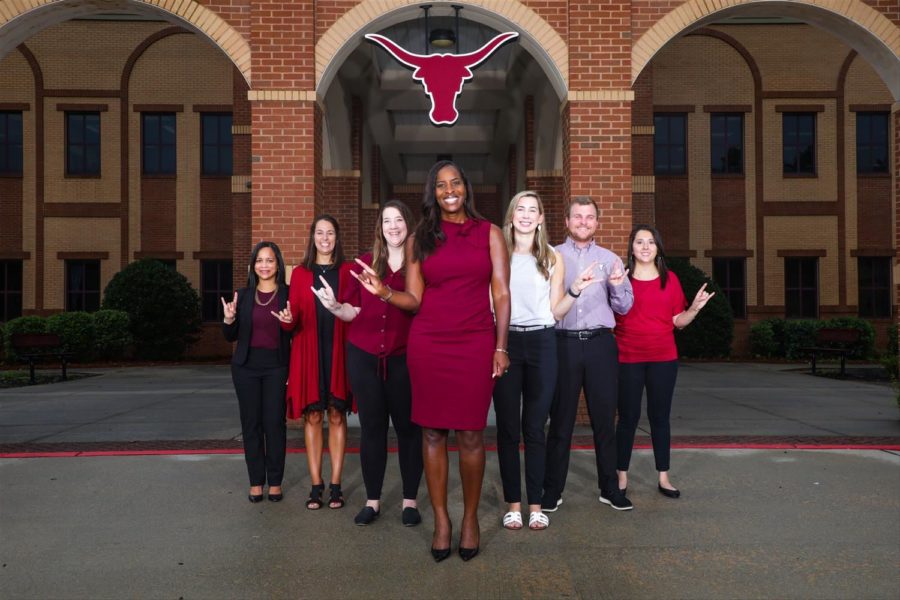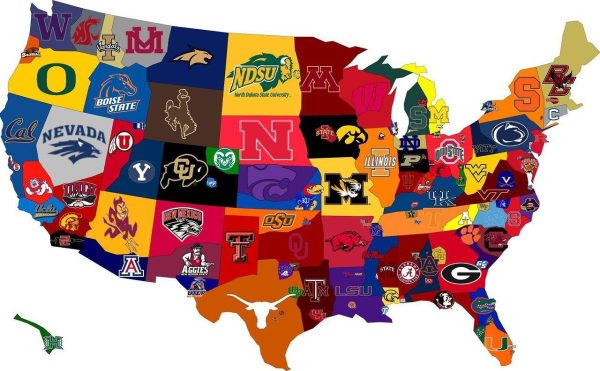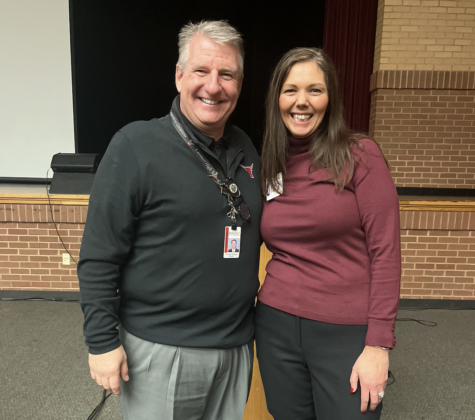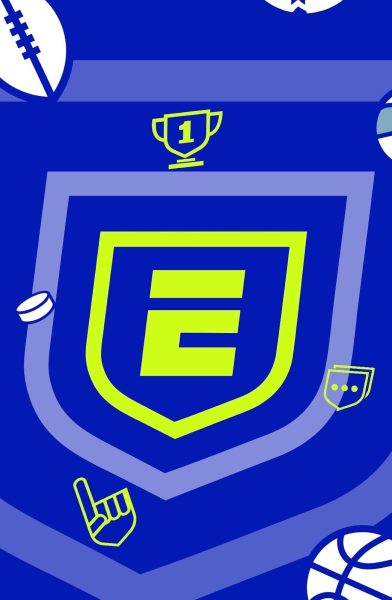On the Final Stretch To College With Ms. O’Grady
Over the course of four years, counselors support students through academic and personal challenges, but they are an especially useful resource in college preparation. After working at Lambert for four years, counselor Ms. O’Grady has seen it all. The last year of high school surfaces a lot of emotions coupled with an immense amount of pressure as seniors plan their futures. They are not alone in this process, though, and counselors are prepared to help every step of the way.
At the base of your application process is your Common Application, which is a platform to submit college applications to multiple schools at once. It is how you present yourself to admissions committees of the colleges of your interest. Being such an impactful and representative set of information, it is important that you maximize the space to give colleges a full picture of who you are. In a storm of pressure and chaos, it can be easy to let things slip through the cracks. Because of this, O’Grady suggests having multiple sets of eyes go over your essays and applications.
“Don’t submit anything unless you have one set of eyes or two sets of eyes on it,” she said.
O’Grady suggests bringing your essays to your counselors and literature teachers so that you can get objective advice from people outside of your immediate circle.
As for supplemental essays, it is important to keep the focus on yourself. It’s easy to lose the topic of your essay to a story, metaphor or other person, but admissions officers are trying to get to know who you are as a person and why this story represents you. These essays should answer the prompt, while explaining how you will contribute to their school and community.
For example, the 2022 supplemental essay prompt from the University of Georgia says to “tell an interesting or amusing story about yourself from your high school years that you have not already shared in your application” in 200-300 words. While it’s easy to simply recount a funny story, you have to make sure that the story provides insight to who you are as a person outside of academics. UGA’s purpose in asking this prompt is to bridge the gap between the student’s full life and the fraction of it on their application.
Most often, students get caught up in numbers and statistics regarding their test scores, class rank and grades, especially in an ultra-competitive environment like Lambert. Ms. O’Grady explained that, because of the increasingly competitive culture regarding academics, schools have been taking a more holistic approach when reviewing applications.
“They want to see that the student is not only going to be academically successful at their school, but that they’ll also be a contributing member of the school and the community,” O’Grady said.
Schools don’t only want to know about your academic profile, but they want to know that you put yourself out there, involve yourself in your community and take initiative in leadership. Not only in school, but they also want to see your presence in its surrounding community and how you will take your skills and apply them to benefit others.
Another byproduct of a competitive culture is that students are inclined to apply to elite colleges solely for their reputation. O’Grady advises against this temptation because employers value students’ initiative in college rather than simply its prestige. She believes that students can create opportunities for themselves regardless of the school they attend.
“The focus should be on you as a student and where you see yourself,” Ms. O’Grady said. “I feel like a lot of people measure their worth on getting into a school. It’s not only ‘can you get into that school.’ It’s ‘do you want to go to that school? Do they have what experiences you’re looking for?’”
In addition to the pressure that students feel to apply to competitive universities, students are also tempted to make their college decision based on where their friends are applying. Instead, students should be focusing on their personal journeys, goals and desires, which often vary from that of their friends.
“What seniors should be doing is really thinking about themselves as an individual student,” O’Grady explained. “What are your personal goals and where do you feel comfortable being for the next four years?”
The application process also presents the questions: Private vs public? In-state vs. going out-of-state? Private colleges offer grants and scholarships to students in addition to financial aid. Although it’s not meant for everyone, it is a personal financial decision and no option should be immediately disregarded. Ms. O’Grady says to “apply, see if you get in and if you do, you don’t know what kind of scholarships you’ll have and financial aid you’ll have.”
This time of year is stressful for seniors and it doesn’t calm down until the spring, so it is important to reach out to your counselors to guide you through this process to manage the stress and anxiety. They are here to help in any way they can and to celebrate as you decide where to spend the next four years of your life. Right now, there are a lot of unknowns, but it is vital to muster the strength to withstand all the emotion that comes with the process and know that it will be over soon.
“If you or anyone is feeling super anxious about things, please encourage them to see their counselors,” O’Grady said.
She explained that she and her colleagues feel fulfilled when their students come to them after choosing their college and tell them about the relief they feel from crossing the finish line. It’s important to remember that you can only control so much, and you will end up where you need to be.
Visit the Lambert Counseling page to see more resources and get in touch with your counselor.
Your donation will help support The Lambert Post, Lambert High Schools student-run newspaper! Your contribution will allow us to purchase equipment and cover website hosting costs.













